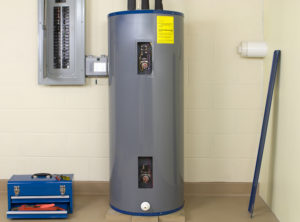Critical Measures for Home Owners Dealing with Faulty Hot Water Systems
Critical Measures for Home Owners Dealing with Faulty Hot Water Systems
Blog Article
Are you currently hunting for facts concerning Water Heater Repair?

Whether it is situated in the cellar or a separate area, busted water heating systems can cause anxiety. Having no warm water supply is additionally problematic.
Call the Plumber
After doing the very first two safety and security steps, you must call your plumber to come right away to take care of a fractured water heating unit. There are usually indicators that your aging water heater has sediment accumulation in the interior.
Do not await major flooding to call the plumber. Already, you will need to spend even more to recover your building. Rather, as quickly as you detect these signs, have a professional come to inspect your hot water heater container. Commonly, hot water heater have a life expectancy of about 8 to 12 years. With regular inspection and also upkeep, you can extend its life.
Cut Off the Cold Water Supply
Cut off the storage tanks faucet water supply from the source. This goes from your primary water line right into the tank. When your storage tank remains in good condition, the cold water stops filling when the container is full. Given that it is leaking, the water will continue to stream. Shut the shutoff found on top of the heating system. Rotate this clockwise to shut it off. If you can not locate it or reach it, you need to switch off that main supply of water line outside your residential property.
Shut Off Source Of Power
Prior to calling the plumber, shut down a gas hot water heater by transforming the temperature dial. This is typically located at the top of the thermostat. Change off the circuit breaker if you have a design that runs on electrical power. This will certainly prevent electrocution, especially if there is a leak as water is a conductor. Typically, the burner turns off when the water strikes a certain temperature. With a damaged container, it might malfunction. Cutting it off guarantees you stay risk-free.
Clean Up Property
After calling the plumber, record damages by bearing in mind and photos so you can declare your house owner's insurance coverage. From there, start the prompt cleanup. Secure any crucial belongings to prevent further soaking. Eliminate any kind of standing water to protect against mold and mold growth. If you have a completely submersible water pump, make use of that to drain pipes the water. Otherwise, the traditional container method will certainly likewise function. Attempt to wipe out everything, including wall surfaces and also baseboards. If you have an electrical fan and dehumidifier, maintain them going to keep air distributing. This will aid hinder mold and mildew growth.
Bear in mind, if you discover any type of issues with your hot water heater, call the pros right now. You can not take this problem gently since a faulty thermostat can elevate water temp to a dangerously high level, resulting in unintentional burns. A broken heating system stress relief valve can also cause an explosion. For ideal results, get a yearly check so your device gets inspected, cleansed, drained, and also replenished, guaranteeing optimal efficiency.
After doing the very first 2 safety actions, you must call your plumber to come right away to repair a burst water heating system. Instead, as soon as you find these indications, have actually an expert come to evaluate your water heater tank. Before calling the plumber, closed off a gas water heating system by transforming the temperature level dial. If you have a completely submersible water pump, make use of that to drain pipes the water. Keep in mind, if you observe any issues with your water heater, call the pros right away.
Is My Water Heater Broken?
The Water Heater is Old
No appliance will last forever. This includes a home’s water heater. During its lifespan, residents are going to face a situation where a new water heater installation will be necessary. The biggest problem with this is that most people are not sure when their water heater expires. Not knowing this can lead to serious risks if the unit begins to act up due to old age.
Most makes and models of water heaters will last between eight and 10 years. While 10 years is the age when water heater replacement is highly recommended, the need to replace the unit may occur before this time or after. If the unit doesn’t show any symptoms of a problem, it is a good idea to replace it at the 10-year mark (from the manufacture date).
Some of the symptoms that indicate a new unit is needed include rusting, leaks, noises, and a failure to heat up the water. Also, note that not all units have a 10-year life expectancy. The main exception to this rule is that a gas unit will last for six to eight years.
Rusty Heater Inlet Valve or Water
While steel is the strongest material on earth, it does have a weakness – rust. If corrosion occurs on a steel surface, it will begin to spread and eat through the steel in certain areas. On water tanks and pipes that are made of steel, rust is a warning sign of an impending leak.
The issue for many is trying to figure out if the rust is coming from the water heater or the pipes that lead to the faucet. If rust is seen, it is a clear indication that water heater service from the professionals is needed.
If rusty water appears out of the faucets in the bathtub or sink, it likely means a rusty water heater. If there is rust near the water inlet or the pressure relief valve, rust has likely developed inside the tank. If tap water appears rusty, it may be an issue with the pipes.
Strange Sounds from the Water Heater
Are there strange sounds coming from the tank? As a water heater gets older, rumbling noises may develop and get louder and louder as the water in the tank heats up. In homes where large amounts of hot water are used, the issue is likely going to be even more obvious when more serious issues arise. If there is a strange or loud noise coming from the unit, it is probably because of sediment buildup. A good way to remedy this problem is by flushing the heater. If this does not work, then a new unit may need to be installed.
Leaks
As a water heater gets closer to the end of its useful life, there is a higher chance there will be water around the tank. If there is water, this usually means leaks are occurring. Based on where the unit is located in the home, a leak may result in serious property damage.
Leaks are usually caused by expansions in the metal tank. The expansions occur as time passes and as the inside body of the tank is exposed to multiple heating cycles per day. When a fracture forms, the gap will be slight enough to hold the water in; however, in more serious situations, this will not be the case. If the tank is idle, the water will not leak but when the metal expands during each heating system, small amounts of water will get through the gap.

We were made aware of that write-up about How to Avoid a Broken Hot Water Heater from someone on a different blog. Appreciated our blog? Please share it. Help somebody else check it out. Kudos for your time. Visit us again soon.
Get industry-leading emergency plumbing. Report this page